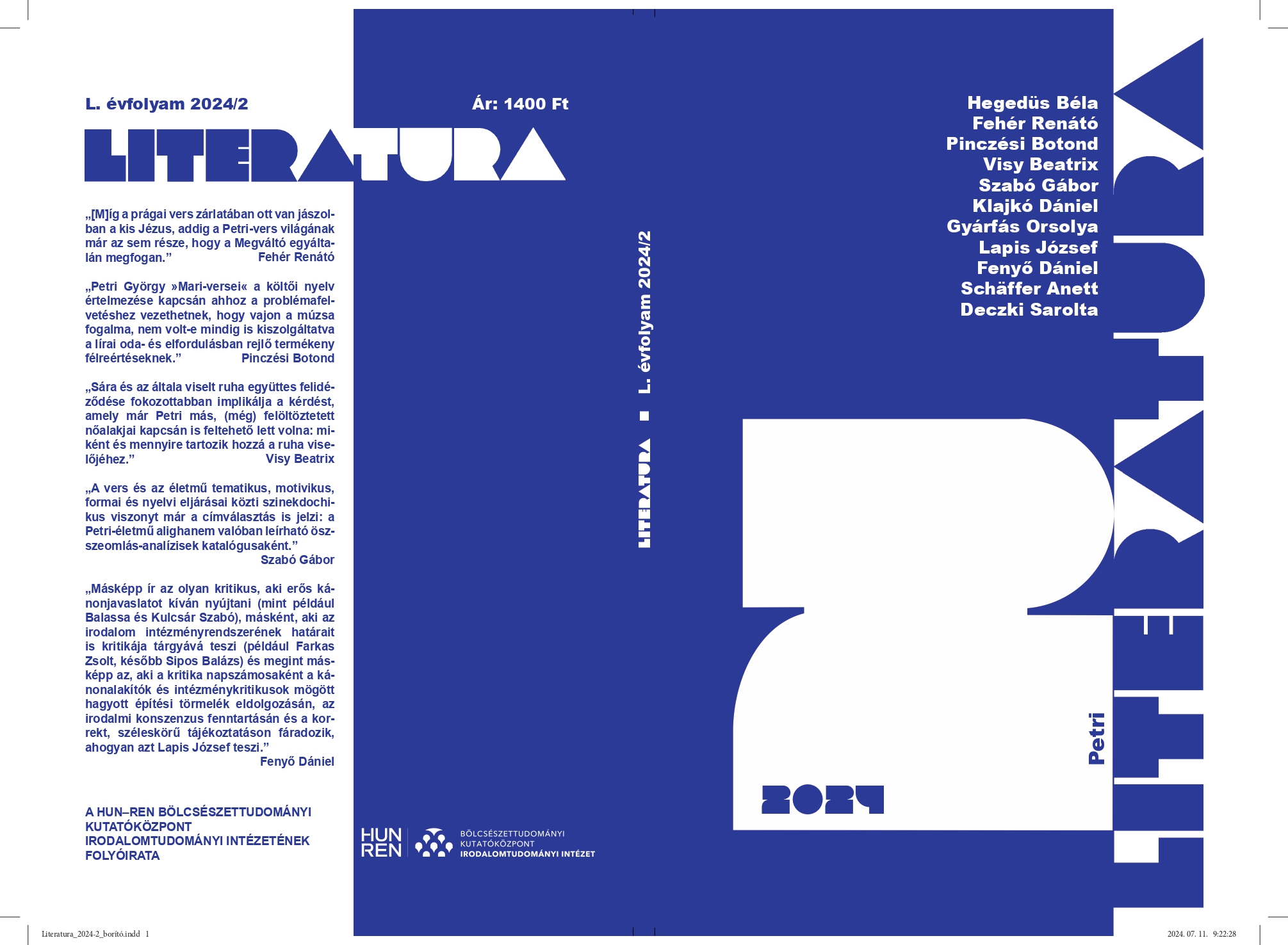Deadplay Among the Ruins
On the Connections between the Petri Poems Összeomlás [’Collapse’] and Holtjáték [’DeadPlay’]
Abstract
The paper examines the epistemological, formal and linguistic processes of Petri’s oeuvre on the basis of two of his poems. The poem is his first representation of the metaphysical drama of an overwhelming ideological collapse, which would later have a decisive influence on the poetics of the oeuvre. This perception of the crisis of existence finds its framework in the linguistic forms of fragmentation, dialogicity, irony, and in the technical procedures of semantic and formal reduction. At the same time, the disintegration of the conceptual order of Being makes the place of the Self uncertain: this is reflected both in the formalism of the poems and in the frequent recurrence of the death motif in the oeuvre. The poem Holtjáték [’DeadPlay’] is able to condense all these characteristics and to give a sense of the important poetic processes of Petri’s poems.



